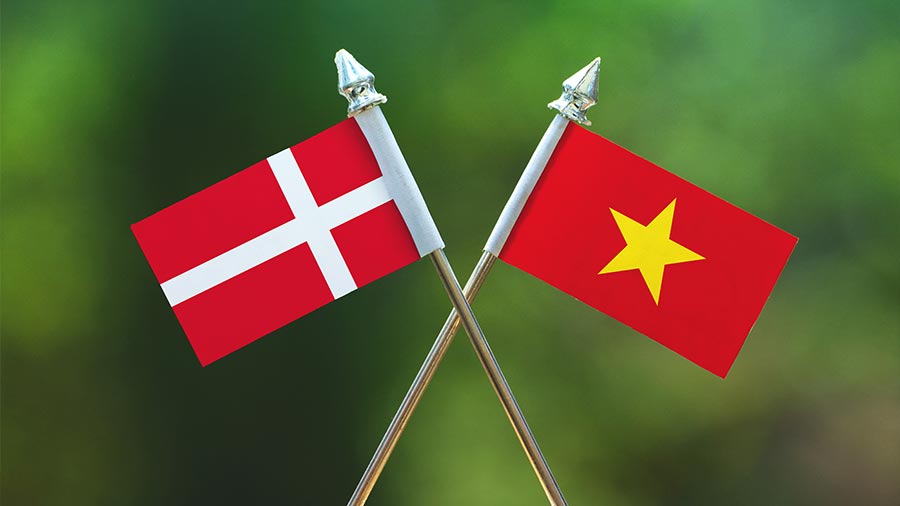Vietnam Issues Draft Decree Regulating Foreign Telecom Service Providers
A recent Vietnam draft decree aims to provide further clarity for foreign telecom service providers in three service segments, namely data center, OTT, and cloud computing. The draft decree will implement key aspects of the 2023 Telecom Law. Final date for public feedback on the draft decree is April 2, 2024.
The Ministry of Information and Communications (MIC) has released a new Draft Decree detailing the implementation of several aspects of the amended Telecommunications Law (the “2023 Telecom Law”). The 2023 Telecom Law, which was passed in November 2023 and comes into effect on July 1, 2024, introduces provisions for three new telecom services, namely telecommunications (telecom) services provided over the internet (OTT services), cloud computing services, and data center services.
Among the major provisions, the 2023 Telecom Law stipulates that there are no limits on foreign ownership in the provision of the three new telecom services, meaning that foreign companies can have 100 percent ownership in these sectors. In addition, the Draft Decree makes it easier for companies to enter these sectors by reducing the administrative tasks required to commence business.
The Draft Decree provides additional clarity on the rights of obligations of foreign and Vietnamese companies to participate in these new categories to assist with the implementation of the 2023 Telecom Law.
The MIC is soliciting public feedback on the Draft Decree until April 2, 2024.
Below we outline some of the provisions proposed in the Draft Decree, focusing on the regulations related to foreign telecom service providers.
Classification of telecom services in the Draft Decree
As mentioned, the 2023 Telecom Law adds three new types of telecom services, which it defines as follows:
The three new services are specifically defined as follows:
Basic telecom services on the internet – telecom services that provide the main function of sending, transmitting, and receiving information between two people or a group of people using telecom services on the internet. These are commonly known as over-the-top (OTT) services.
Data center services – telecom services that provide information processing, storage, and retrieval features for users via telecom networks by leasing part or all of the data center.
Cloud computing services – telecom services that provide information processing, storage, and retrieval features for users over telecom networks through cloud computing.
The Draft Decree proposes to classify these three services as value-added services.
Meanwhile, the draft decree provides additional clarity on the classification of different types of telecom services. First, it defines network services as basic telecom services provided by telecom companies (telcos) for lease, for full or partial use of the telecom network, for selling traffic, or for selling services to other telcos.
It also lists the following as “basic services” provided to users of telecom services:
- Voice services;
- Messaging services;
- Fax services;
- Video conferencing services;
- Leased line services;
- Data transmission services;
- Radio and television transmission services;
- Transmission services for machine-to-machine connections;
- Virtual private network (VPN) services; and
- Other basic telecom services according to regulations of the MIC.
Meanwhile, value-added telecom services include:
- Email services;
- Voicemail services;
- Value-added fax services;
- Internet access services;
- Data center services (new);
- Cloud computing services (new);
- OTT services (new); and
- Other value-added telecom services according to regulations of the MIC.
Finally, the Draft Decree also defines “additional telecom services” that don’t fall into the above categories as “services that add features and utilities for users of telecom services, which are an inseparable part and provided together with basic telecom services and value-added services.”
The Draft Decree states that the MIC will release a list of telecom services based on the above classifications, changes in the market situation, and telecom management policies.
Rights and obligations of foreign companies to provide telecom services
Foreign and domestic companies providing telecom services in Vietnam have their rights enshrined under Vietnam’s Enterprise Law. Under the Telecom Law, they are also protected from certain legal liabilities and are not required to compensate for indirect damages or unearned profits due to the provision of telecom services that do not ensure time and quality.
Companies providing telecom services in Vietnam have a range of responsibilities with regard to storing user information, notifying the authorities of the provision of services, and ensuring compliance with relevant laws and regulations.
Registration, storage, and management of user information
Under the Draft Decree, when entering into a contract to use OTT services, the user is required to provide their service registration name and mobile phone number. The company providing the OTT services is responsible for verifying the user’s mobile phone number before it can provide the service. In addition, the OTT service provider must store the information the user provided when concluding the contract, as well as information about the user’s use of the service. The storage period and provision of information to competent state agencies must comply with the Law on Cybersecurity.
Meanwhile, when a user enters into a contract to use data center or cloud computing services, they must provide the following information:
- For individuals: Their full name and contact phone number or email address;
- For organizations: The organization’s name, address, and information on the contact person (full name and contact phone number or email address).
The company providing the data center services and cloud computing services is then responsible for storing this information in accordance with the Law on Cybersecurity.
Finally, the data of state agencies using data center and cloud computing services must be stored within the territory of Vietnam. Companies providing data center and cloud computing services to state agencies must meet the requirements for ensuring information system security as prescribed by cybersecurity laws and guidance from the MIC before commencing operations.
Regulations on the provision of cross-border telecom services
Under the Draft Decree, companies providing cross-border telecom services (excluding data center services, cloud computing services, and OTT services) to users of telecom services within the territory of Vietnam must have a commercial agreement with a Vietnamese telecom company that is licensed to provide these services. The Vietnamese company must also be permitted to establish international gateways, except in cases where international conventions to which Vietnam is a member have different regulations.
Foreign companies providing cross-border telecommunication services to software development zones or high-tech zones as stipulated in an international convention to which Vietnam is a party are only permitted to provide satellite telecommunication services to entities permitted to provide telecom services in these zones.
The Draft Decree also specifies that foreign companies providing cross-border OTT services to users in Vietnam must also comply with several provisions of the Telecom Law. These obligations include (but are not limited to):
- Refraining from causing harmful interference, damaging equipment, structures, or telecom networks, or harming the lawful activities of the telecom infrastructure of other organizations or individuals during their activities.
- Urgently stopping the provision of telecom services in the case of riots, use of telecom services to oppose the State of Vietnam, or violations of national security at the request of a competent state agency.
- Ensuring information confidentiality, including protecting state secrets, encrypting information when sending, transmitting, or storing information classified as state secrets on the telecom network, guaranteeing the confidentiality of the personal information of organizations and individuals transferred via the public telecom network.
- Refraining from engaging in illegal behavior through the telecom services as stipulated in Article 9 of the Telecom Law.
Notification of provision of telecom services
The Draft Decree explicitly excludes the provision of data center services, cloud computing services, and OTT services from the requirements to have a commercial agreement with a Vietnamese telcom company. Instead, foreign companies that wish to provide these services to users in Vietnam will only be required to notify the Vietnam Telecommunications Authority (VNTA) of the provision of services. This suggests that the government is trying to make it easy for foreign companies to enter these industries.
Under Article 44 of the Draft Decree, companies providing telecom services, including OTT services, cloud computing services, email services, voice services, and value-added fax services, must submit a notification of telecommunication service provision to the VNTA to notify them of their intention to provide these services. The company must include the following information when submitting the notification:
- The name of the company providing the services;
- The company’s business registration certificate;
- The type of telecom service being provided; and
- Information about the quality of the services provided.
The VNTA will issue a confirmation certificate of the telecom service provision notification to the company within two days of receiving the notification.
Meanwhile, companies must register to provide telecom services such as data center services. To do so, companies must do the following:
- Have a business registration certificate;
- Have a technical plan for the specific type of service provided in accordance with regulations on service quality, ensuring the safety of telecommunications infrastructure and network information security; and
- Submit registration documents for telecom service provision to the VNTA.
The VNTA will issue a certificate of registration to the company within five working days of receiving the registration documents.
About Us
Vietnam Briefing is published by Asia Briefing, a subsidiary of Dezan Shira & Associates. We produce material for foreign investors throughout Asia, including ASEAN, China, and India. For editorial matters, contact us here and for a complimentary subscription to our products, please click here. For assistance with investments into Vietnam, please contact us at vietnam@dezshira.com or visit us at www.dezshira.com.
Dezan Shira & Associates assists foreign investors throughout Asia from offices across the world, including in Hanoi, Ho Chi Minh City, and Da Nang. We also maintain offices or have alliance partners assisting foreign investors in China, Hong Kong SAR, Dubai (UAE), Indonesia, Singapore, Philippines, Malaysia, Thailand, Bangladesh, Italy, Germany, the United States, and Australia.
- Previous Article Vietnam-Canada Bilateral Relations, Trade, and Investment Outlook
- Next Article Vietnam Unveils Decree 32/2024/ND-CP on the Management and Development of Industrial Clusters































